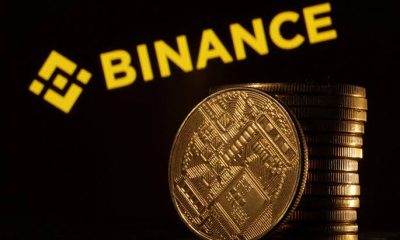
Cryptocurrency
Crypto News: KuCoin Highlights Flaws In DeFi Platform Acala’s Post-Exploit Proposal
Hackers transferred 8.03 million aUSD to KuCoin, rather than 4.937 million aUSD. And 5.3 million aUSD, rather than 1 million aUSD, were traded on the platform, according to KuCoin’s account

KuCoin, a Seychelles-based crypto exchange has highlighted flaws in decentralized finance (DeFi) network Acala’s community proposal. To recover billions of dollars worth of a USD erroneously issued during a mid-August exploit, according to a Tuesday post published on KuCoin’s blog.
iexclusivenews reports that the blog pointed out various apparent flaws in the Acala proposal’s narrative of the exploit. Including errors in the reported number of aUSD mints delivered to and traded on KuCoin.

“As a neutral platform, KuCoin has no intention to intervene in the governance of the Acala community, but it has been found that much of the important information related to the CEX in the report and the proposal is inaccurate,” the blog read.
Hackers transferred 8.03 million aUSD to KuCoin, rather than 4.937 million aUSD. And 5.3 million aUSD, rather than 1 million aUSD, were traded on the platform, according to KuCoin’s account. Which referenced data from a list of the exchange’s aUSD deposit addresses.
This online news outlet understands that KuCoin and Acala have not responded to CoinDesk’s request for comment.

KuCoin recommended Acala on its blog to evaluate its community’s request because to its dependence on potentially false data.
[the_ad id=”41664″]
The exchange warned that freezing and burning aUSD tokens, which the community did after evaluating the data, might cause “huge damage to the Acala community and the price of the aUSD token.”
“Given the significant difference in the amount of aUSD error mints deemed necessary to re-collateralize, it is suggested that the Acala community reconsider the current proposal together with the Acala Foundation,” the post read.
Hackers erroneously created what should have been more than $3 billion in aUSD stablecoins.
[the_ad id=”41670″]
Their efforts coincided with the debut of Acala’s iBTC/aUSD liquidity pool. A crowdsourced collection of smart-contract-locked wrapped bitcoin and Acala’s native, “censorship-resistant” stablecoin. Meant to reward liquidity providers with acala (ACA), the network’s native token, and interlay (INTR).
Following the hack, the Acala community put together a trace report to identify the 16 wallet addresses used in the attack and to track down suspicious transactions.
Since then, the network has recovered and burnt 2.97 billion, or nearly 98%, of the 3.02 billion incorrectly generated tokens.
However, iexclusivenews Nigeria reports that before restoring services on the network, the community is still attempting to track down and recover the remaining hacker-created tokens.



























